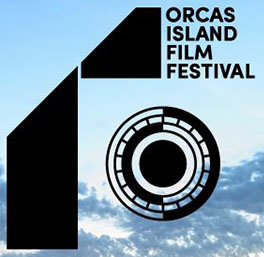— Guest review by Jule Treneer —
 Why would a French soldier lay flowers at a German soldier’s grave? That is the opening mystery in “Frantz”, Francois Ozon’s touching film based loosely on Ernst Lubitsch’s 1932 classic “Broken Lullaby.”
Why would a French soldier lay flowers at a German soldier’s grave? That is the opening mystery in “Frantz”, Francois Ozon’s touching film based loosely on Ernst Lubitsch’s 1932 classic “Broken Lullaby.”
The mystery, it turns out, is unraveled fairly soon. He knew Frantz, he tells the eponymous dead soldier’s family. They were friends in Paris from before the war. But as those familiar with Ozon’s work have come to expect, it turns out that that first answer only obscures a hidden and more complicated story.
A portrait of the trauma and loss borne by soldiers and bereaved families in the aftermath of the jingoistic disaster that was the Great War, “Frantz” considers whether the myths we tell ourselves about those we love are sometimes more valuable than the truth. It deals with the little lies and compromises that acceptance and healing often require.
The first frame of the film is a beautiful still shot—a hilltop view of the picturesque little German town where the first half is set. Then the picture fades from color to black and white. It’s 1919, and Anna (played by the lovely and amazing Paula Beers) lives her life in black and white, tending the grave of her dead fiancé Frantz and looking after his parents, despite their gentle wishes that she marry another.
The appearance of Adrien (played with bland sensitivity and a cool moustache by Pierre Niney) offers new hope. This traumatized young man with a heavy conscience soon wins over Frantz’s parents (played with moving kindliness by Marie Gruber and Ernst Stötzner) who find consolation in his virtuosic violin playing and reminisces of his friendship with Frantz. The flashbacks we see in color—sumptuous Belle Époque memories of Adrien and Frantz (Anton von Lucke in flashback) frequenting dancehalls or walking the Louvre. Thereafter, the film shifts between color and black and white. And at times, this feels like a gimmick. There is a charming scene where Anna and Adrien hike into the hills, walking up and out of the town into the full color countryside. Here, the effect is vivid and revelatory—Anna literally lifted out of her monochromatic existence. Often though the color shifts seems like a distraction, the gimmick pays off wonderfully in the film’s beautiful final moment.
Now clearly, few in the town aside from Anna and her family have much sympathy for the former French soldier. Many seem to have a penchant for belting out “Deutschland über alles” full-throated while nursing bitter beer steins of resentment. The war did not extinguish the nationalistic fervor that started it. In one of the more awesome scenes in the film, Frantz’s father takes his anti-French friends to task, pointing out that French soldiers may have killed their boys, but it was the German fathers, like he and they, who sent them off to battle.
But just as Anna starts transferring her affection to Adrien, the truth outs. There’s more to Adrien’s story than he’s letting on, and he departs for France and disappears. At Frantz’s parent’s urging, Anna sets out for Paris to track him down. And it is in the second half that Ozon puts his particular stamp on the film. In a twist on the familiar story of the returning soldier, it becomes clear this was Anna’s film to begin with. By centering the story on the bereaved heroine instead of the conflicted hero, Ozon takes the focus away from the usual horrors of war we have come to expect from such movies.
Anna is engaged in the less grandiose but no less difficult task of reconstructing life in the wake of tragic loss. Her voyage ultimately leads her back to Adrien, and to revelations about Frantz. Along the way her route passes through a countryside still devastated by war. There’s a scene in a Parisian café where the “Marseillaise” is sung with a menacing zeal one normally associates with authoritarian regimes. It’s a chilling moment, because of course we realize that World War round 2 is a scant 20 years away. Every nation thinks its cause is just and true.
It’s a tribute to the quality of the Orcas Film Festival this year that attendees will get a chance to see a François Ozon film I could only see on screen in Paris until now. Paula Beer won the Marcello Mastroianni Award for Best Young Actress at the Venice Film Festival in September for her stunning performance. The film plays at 2:00 pm on Saturday, September 9 at the Seaview Theater.
Jule Treneer is a writer based in Paris, France, who spent his summers on Orcas Island as a kid.
**If you are reading theOrcasonian for free, thank your fellow islanders. If you would like to support theOrcasonian CLICK HERE to set your modestly-priced, voluntary subscription. Otherwise, no worries; we’re happy to share with you.**








